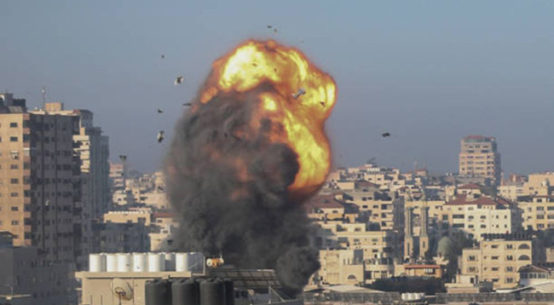Populism may cheer the fight back by the Burman civilian clusters against Burman military ones but it also signals the rise of long term disaster for all Myanmar people. Initially, it had seemed that the military was in charge, resistance was spontaneous not sustainable and casualties would be low but that is proved false. It’s possible that bigger games are afoot and Myanmar is least in charge of that.
Rather than a fight between a dictatorial army and democratic civilians, It’s a more basic issue of contest for power between a less privileged and more privileged member of an elite group. The conflict in Myanmar –very rich in resources- is about who controls it. The army enjoyed it solely for long before civilian protest arose from the rest of the Burman groups.
Through the series of small upsurges, the anti-military group won small victories till an elected government was established based on an understanding that the military would be a shareholder.
The leader of the Burman civilian group was Suu Kyi who is also an icon in the West. She spent years in exile, returned home to lead the fight, spent years as a home prisoner and finally emerged to be the PM. The peak of her power was in the last election. She had sewed up all the loose threads of her image including not being anti-Muslim enough, anti-Rohingya enough.
Not only had she endorsed the expulsion of the Rohingyas but fought against the trial of genocide at the ICJ. She knew both acts would increase her popularity with the Myanmar citizens in general and the Burmans in particular. Streets of Yangoon were also full of protests against the ICJ, a sight that warmed her heart.
It did pay off and she won the elections. Having done so she expected a smooth journey but just as the Rohingyas had no idea that they were paying a price for long standing unresolved internal problems of Myanmar, Suu Kyi had no idea there were similar problems within the Burmans. The army, worried about losing privileges to members of the same ethnic community didn’t want the risk involved and struck back. And the crisis is on.
The world is cheering the street protestors and seeing it as a fight against military rule but when establishments belonging to China are torched, it becomes an external forces related fight too. Unless the protestors are people who have no livelihood worries, it may continue for a few months and then die as do the personal savings of the protestors. If not, the question of who funds the protest will arise.
Those who are playing the game – US and China- knows who is doing what but what it means is that the situation has already moved out of the local space. With Myanmar the least important player in the fight, they now taste the impact of powerlessness which the Rohingyas have known for long. The similarity at this stage is striking. In very odd ways history for all may well be the same.


